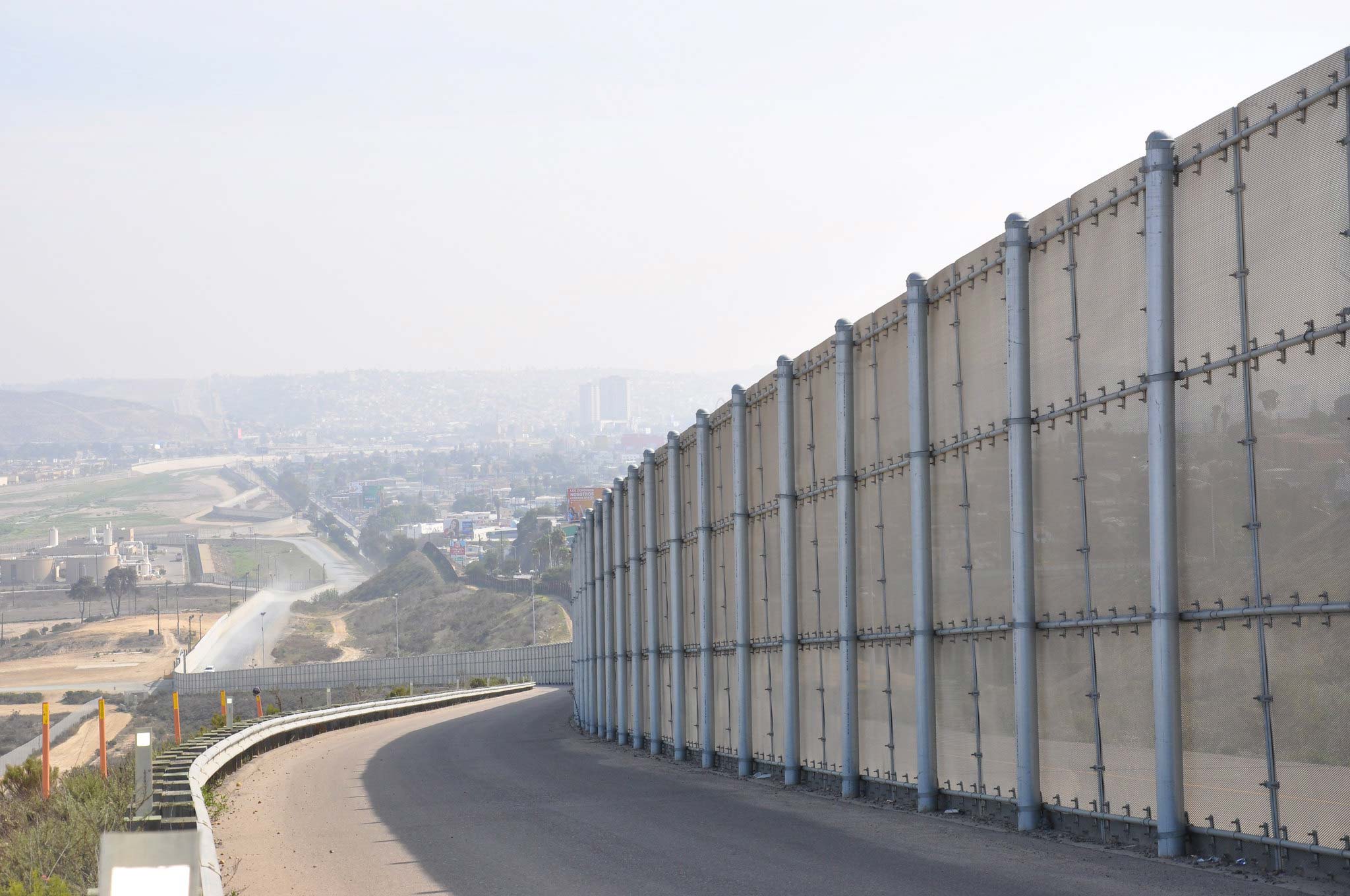
Read more
Blog, Migration Governance
A US-designed Migration Pact for the Americas?
This blog post has been initially published by Eurac and re-published here on MPC blog. Twenty countries in the Americas recently adopted a regional agreement on migration and protection that was proposed by the...
Introduction
At least 37 migrant men died following a collective effort to “crash” the fence separating Morocco from Melilla, one of the two Spanish enclaves in North Africa, on June 24th. The number of casualties is expected to increase, and hundreds of people were reportedly injured. Spanish prime minister Pedro Sanchez stated that the events in Melilla constituted a “violent and organized event by mafias that smuggle human beings attempting an attack against Spain’s territorial integrity.” EU Commissioner Ylva Johansson also condemned the events via Twitter, claiming that “forced, and violent, crossing of an international border can never be condoned.”
In this contribution, I reflect on the Melilla incident, and position/locate it alongside two other specific incidents in which governments have also resorted to blame mafias, organized crime or criminal networks for collective, migrant-organized attempts to cross international borders. The first is UK Home Secretary Priti Patel’s linkage between crossings of the English Channel and ‘trafficking’ networks. The second is the often-cited claim that organized crime has infiltrated the migrant ‘caravans’ from Central America to the United States travel through Mexico.
All three cases have been dealt with through the deployment of drastic enforcement measures involving questionable forms of punishment and violence against migrants, on the grounds they are justifiable responses to counter the spread of smuggling networks or transnational organized crime.
Governments commonly attribute mass casualty incidents involving migrants to smugglers or criminally organized networks, or ‘mafias.’ These groups are systematically depicted as being behind the concerted efforts to ‘crash’ borders, violating a country’s sovereignty, which demands a swift government response. Yet research reveals scant if any evidence regarding the involvement of organized crime in these collective, mass efforts to cross borders.
Echoing other scholars, I argue that these migrant-led attempts are the result of the lack of equal access to legal, safe, and orderly paths to migration. But most troublingly, to the growing unaffordability of smuggling services, which prices have increased as a direct consequence of counter-smuggling efforts worldwide. In so doing, my hope is to re-direct the conversation onto the impacts of counter-smuggling practices on migrants, who priced out of the smuggling market and systemically excluded from legal paths to migration most often by race and class, turn to riskier, more lethal strategies as part of their mobility plans.
The roots of ‘smuggling’
The UN’s Protocol Against the Smuggling of Migrants sought to bring irregular migration under the umbrella of organized crime by designated its facilitation a criminal offense. The last 20- plus years has seen the gradual expansion of both efforts to criminalize the facilitation of irregular migration, and of counter-smuggling processes.
I do not deny the fact that criminal groups can be part of smuggling efforts. However, their structure, size and modus operandi vary, and that matters due to their implications. The 2018 UNODC Global Study on the Smuggling of Migrants acknowledges irregular migrant journeys can be facilitated by a wide range of people organized in multiple fashions – network-like groups being only one of them. However, the public’s obsession with organized crimes tropes, and the brutality of migrants’ deaths and disappearances often related to smuggling-related accidents have contributed to the consolidation of the belief that migrants’ irregular journeys can only be the result of actions by networked and savvy criminals. Since the claims help justify requests for large migration and border control enforcement budgets, establishing smuggling as the sole domain of vast, complex organized networks is also important for states, even as the evidence suggests most of those arrested for smuggling are not part of networks but operate on their own, or as part of small, community-based operations. (In the United States alone, 65 percent of smuggling cases referred for prosecution in 2021 involved six migrants or fewer).
Recognizing who smugglers are also constitutes an important criminal and social justice issue when we consider that a significant percentage of those facing charges and ultimately being convicted for smuggling are members of historically marginalized groups, like people racialized as black, members of indigenous groups, groups internally displaced as a result of civil war or other conflicts, and women, children and elderly people living in conditions of extreme precarity along the migration pathway. Furthermore, smuggling research systematically reports most smugglers were migrants or asylum seekers at some point in their lives who became stranded in the process of migrating, or aspire to eventually continue to migrate.
The increasing precarization of smuggling services
Empirical research on migrant smuggling shows that around the world, counter-smuggling efforts have been so effective they have managed to push smuggling services out of reach for thousands of people around the world seeking to migrate. In a forthcoming collection, alongside researchers Kheira Arrouche, Ahlam Chemlali, Amelia Frank-Vitale, Karolina Augustova and David Suber, we document multiple examples of migrants in North Africa, the Middle East and the Americas who relying on nothing other than their social capital, embark on irregular journeys lacking traditional smuggling support, purposedly engaging in extraordinary risks given the increasing inaccessibility and unaffordability of smuggling services.
Evidence suggests that many of the people who embark on efforts like those leading to the incident in Melilla –or this week’s tragic events in San Antonio— are among those impacted by the precarization of smuggling services. In other words, increasing smuggling prices derived from stepped up enforcement are preventing migrants from accessing safer, if still irregular, mobility options. Granted, incidents like the ones documented in this brief are nothing new. However, when seen comparatively, they are examples of how around the world events of this magnitude are becoming more common, and more lethal, what suggests their correlation with the expansionism of the global counter-smuggling project. The sections that follow examine three specific examples.
The UK, Rwanda and Smuggler’s “Repugnant activities”
While suspended due to a last-minute ruling by the European Court of Human Rights, the British government was on the verge of starting flights leading to the deportation of asylum seekers to Rwanda on June 14th. Home Secretary Priti Patel had argued that the measure sought to break up the “people smugglers [… ] lethal and evil business model by removing the demand for their repugnant activities.”
In 2021, 28.526 people came to Britain across the English Channel in small boats. Despite these numbers and Patel’s claims, there is scant empirical work linking the organization of or the facilitation of irregular journeys across the Channel to smuggling groups alone. The data available suggests the journeys into the UK are facilitated by groups organized in a vast range of fashions – from lorry drivers, as shown by the 2019 incident in Essex in which 39 Vietnamese migrants lost their lives, to journeys organized by stranded asylum seekers, to individual and/or independent efforts by men, women and families on board of dinghies or even canoes. Despite their diversity, the Home Office has repeatedly claimed these journeys are only the result of the concerted efforts by “callous criminals” engaged in complex “business models,” arguments that have then been used as part of the justification for the criminalization of irregular arrivals in the forthcoming Nationality and Borders bill.
The ‘Infiltrated’ Caravans
In 2018, media reporting focused on large groups comprised predominantly by Central American migrants who had begun to assemble in cities across Central America with the intention of traveling together into Mexico seeking to reach the United States as a caravan. As the work ofAmelia Frank-Vitale shows, by traveling as a group, the migrants (many unable to afford smuggling services) sought to rely on the power of numbers for protection and companionship, as well as to communicate a visual message of unity to governments and citizens along their pathway. It was not long before claims by Mexican and US government officials and even civil society that the caravans had been infiltrated by organized crime began to emerge. Then-president Donald Trump claimed that “unknown Middle Easterners” had infiltrated the caravan, rekindling some Americans’ racialized fears over the potential reliance of terrorist groups on irregular migration routes to carry out an attack (a claim also repeatedly disproved by evidence). Rumors by Mexican authorities that the caravan organizers –long standing community activists – were in fact coyotes (migrant smugglers) were eventually used to justify their arrest. While the charges were ultimately dropped, the arrests were interpreted as clear attempts on the part of the Mexican government to criminalise solidarity and humanitarian aid and to inflict fear among caravan participants.
Melilla
For decades, migrants from countries all over Africa have arrived in Morocco seeking to settle there or as part of their efforts to ultimately reach Europe via Spain. As a result of the lack of equal, legal and orderly access to visas and passports, there have been a series of attempts organized by migrants themselves aimed to overcome border controls to cross the border into the Spanish enclaves of Ceuta and Melilla in-mass leading to the death of hundreds of them.
Migrants form part of these self-organized attempts to “crash the border” often armed with precarious tools and weapons, using their bodies as shields. There is no evidence linking any of these attempts to smuggling groups, let alone any other forms of organized crime or any other actors who could profit financially. If at all, as mentioned earlier, these efforts point to the growing inaccessibility not only of legal paths to migration, but of affordable smuggling services allowing people to cross into Ceuta, Melilla, or across the Mediterranean itself.
Conclusion: The future of counter-smuggling, now
Reactions to irregular migration in the UK, Mexico and Central America, and Melilla point to a series of troubling trends:
- Counter-smuggling efforts in the form of border externalization have been extremely successful, to the point that they have priced out migrant smuggling services from the reach of the migrants who need them the most.
- The inaccessibility and unaffordability of smuggling services has led increasing numbers of people (i.e.: young men racialized as black, people from indigenous and internally displaced communities due to civil war, globalization and conflict, among others) to pursue their own migration strategies – that is, without the sheer layer of protection smuggling may provide.
- The precarization of smuggling services has not only increased the criminalization of migrants accused of performing tasks conducive of their own journeys. It has the potential to lead to even more frequent events like those witnessed in Melilla on June 24th or in San Antonio on June 27th, involving devastating numbers of casualties.
- Most importantly, there is no empirical evidence connecting mass or collective attempts to migrate to organized criminal groups, for the likelihood of financially benefitting from events driven by those priced out of the services they can provide is null.
If at all, the tragic events of the last week confirm what we have long known: irregular migration and the efforts associated with it constitute a market of the poor and for the poor. If at all, incidents like those in Melilla, the UK, Mexico or San Antonio are cruel reminders of how counter-smuggling efforts target and punish those unable to fulfill the unattainable requirements imposed upon the marginalized to travel safely, orderly, legally, but most importantly, with dignity.
Nobody seeks smugglers out of pure desire. Blaming mafias and organized crime alone exempts the states from their responsibility in the creation of barriers that prevent people from traveling safely. To continue claiming that migration must be orderly and regular when those paths are inaccessible to so many, is simply disingenuous.
Dr Gabriella Sanchez is field research director at the University of Massachusetts Lowell. From 2017 to 2020, she was a research fellow at the MPC of the EUI where she examined migrant smuggling dynamics and the EU response.

